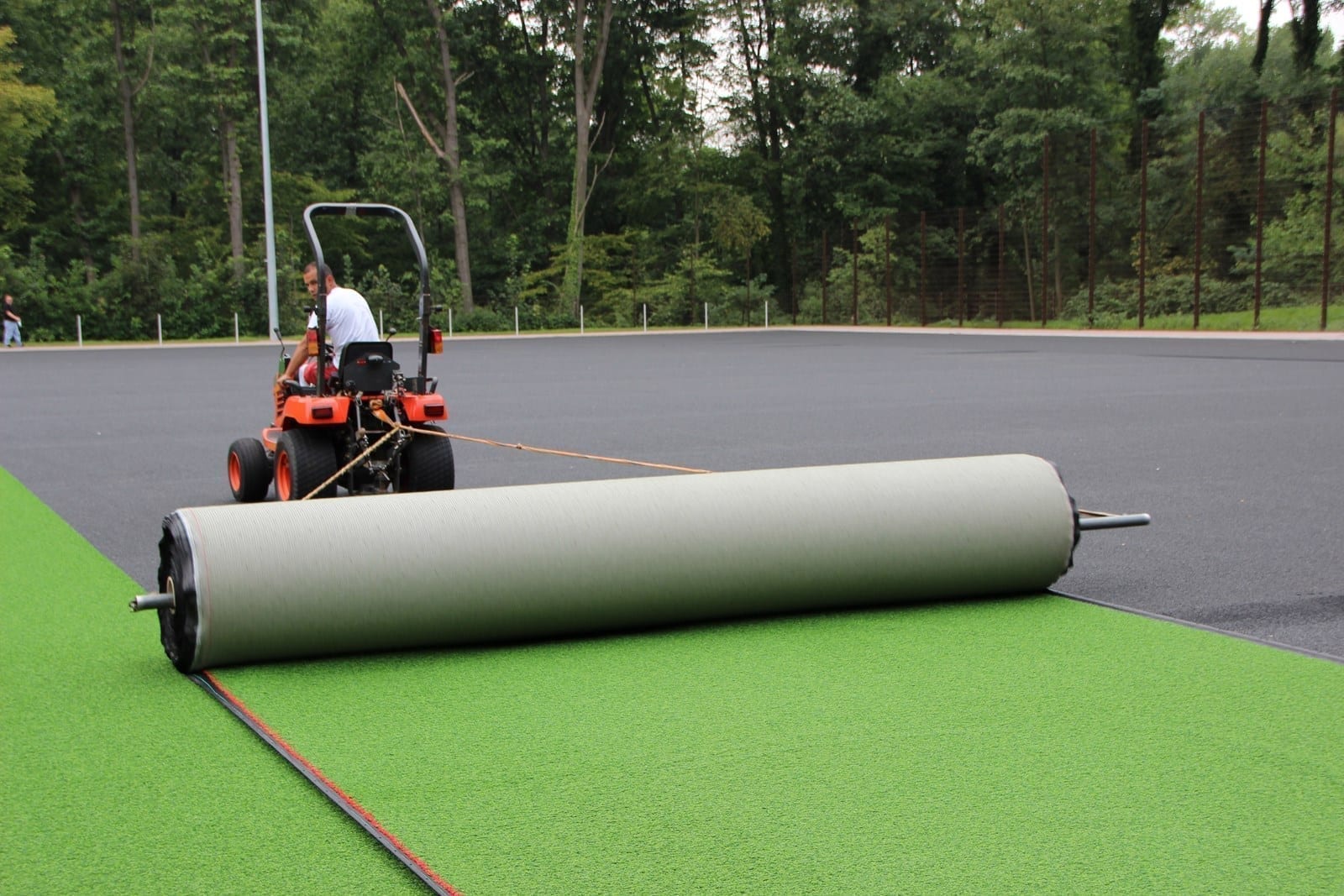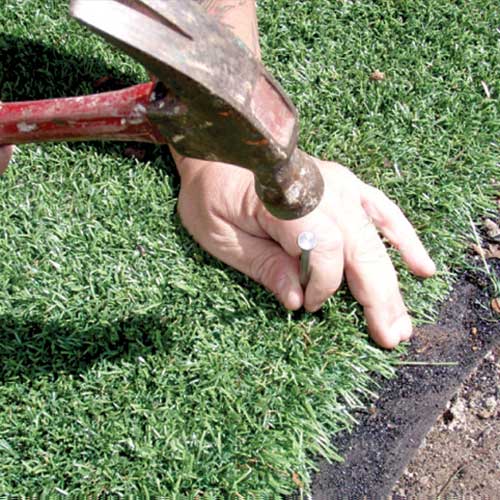Find the Leading Turf Installation Phoenix AZ Solutions for Your Home or Business
Find the Leading Turf Installation Phoenix AZ Solutions for Your Home or Business
Blog Article
Explore the Environmental Conveniences of Opting for Synthetic Grass Solutions
The fostering of man-made turf remedies offers a compelling possibility to attend to pressing environmental obstacles. By substantially decreasing water usage and minimizing the application of damaging chemicals, these choices not only advertise sustainable landscaping but also shield local ecological communities.
Water Preservation Conveniences
One of the most considerable advantages of man-made turf is its capacity to preserve water. In contrast, fabricated turf does not need watering, substantially reducing the general demand for water resources.
By eliminating the demand for routine watering, synthetic grass adds to sustainable landscape techniques and assists minimize the ecological impact of extreme water usage. In addition, the conservation of water includes the decrease of overflow, which can result in soil erosion and river pollution.
Additionally, the installation of synthetic grass enables homeowners and districts to allot water sources extra successfully, concentrating on essential usages such as alcohol consumption water and agriculture. The change towards fabricated turf not just advertises responsible water use yet also aligns with broader environmental goals intended at preserving natural deposits.
As communities significantly focus on sustainability, the water conservation benefits of synthetic grass present an engaging case for its adoption in domestic and industrial landscaping tasks.
Reduced Chemical Usage
The change to artificial lawn dramatically lowers the dependence on chemical therapies generally used in natural yard maintenance. Typical turf management normally involves the application of plant foods, herbicides, and chemicals to promote growth and control pests. These chemicals can position threats to human health and wellness, local wild animals, and the setting, adding to dirt and water contamination.
In contrast, fabricated grass gets rid of the demand for these harmful compounds. By decreasing the launch of artificial compounds right into the ecosystem, synthetic turf advertises healthier soil and water systems.
In addition, the absence of chemical drainage related to synthetic grass installations assists protect neighborhood rivers from pollution, supporting water life and keeping biodiversity. Phoenix turf companies. As areas increasingly focus on sustainable methods, going with synthetic grass presents a practical service that aligns with environmental conservation goals. Through this shift, property owners can delight in rich environment-friendly rooms without jeopardizing ecological health, leading the way for a much more lasting future
Lower Carbon Impact

Furthermore, the installation of fabricated turf can cause considerable water conservation. All-natural lawns need substantial quantities of water for watering, which not only includes in the carbon impact associated with water extraction and treatment however additionally strains local water sources. In comparison, synthetic grass needs minimal maintenance, calling for no watering, consequently dramatically decreasing water usage and its associated energy costs.
In addition, the durability of fabricated lawn contributes to its lower carbon effect. With a lifespan of as much as 15 years or even more, the requirement for frequent replacements is diminished, leading to less waste and reduced power usage in production and taking care of standard yard alternatives. On the whole, synthetic grass provides a sustainable option for environmentally mindful landscape design.
Habitat Conservation
Habitat preservation is an essential consideration in the discussion over landscaping options, particularly when contrasting synthetic grass to natural turf. Natural grass lawns usually need extensive maintenance, including the usage of chemicals, herbicides, and fertilizers, which can detrimentally affect neighborhood ecological communities. These chemicals can leach right into the dirt and waterways, damaging indigenous flora and animals and interrupting regional environments.
In comparison, synthetic grass offers a possibility to lower the ecological footprint of landscaping. By choosing for artificial lawn, home owners can minimize the disruption of natural habitats connected with traditional lawn care methods. Fabricated turf eliminates the requirement for harmful chemicals, therefore securing close-by wildlife and preserving the integrity of bordering environments. Additionally, the setup of synthetic grass can cause the conversion of previous lawn areas right into more biodiverse landscapes, such as pollinator gardens or indigenous plant areas, which can support local wildlife.
Eventually, the shift check my blog to synthetic grass not just preserves water and reduces upkeep initiatives however additionally fosters an extra harmonious connection in between human activities and the natural environment, advertising environment conservation in the procedure.
Long-Term Sustainability
Long-lasting sustainability is a critical factor in assessing the benefits of artificial lawn over traditional lawn lawns. Among the most significant benefits of synthetic grass is its durability; it can last as much as 15-20 years with minimal upkeep, whereas all-natural turf needs constant reseeding and substitute. This durability lowers the need for continuous sources, such as water, fertilizers, and pesticides, which are vital for keeping a healthy yard lawn.
Furthermore, synthetic grass adds to a decrease in carbon emissions related to yard care equipment. Traditional yards typically call for gas-powered lawn mowers, leaners, and blowers, every one of which add to air contamination. Turf installation phoenix az. On the other hand, man-made lawn gets rid of the requirement for such equipment, advertising a cleaner setting
In addition, the production of artificial lawn increasingly makes use of recycled materials, enhancing its sustainability account. As manufacturers adopt eco-friendly techniques, the environmental impact of synthetic grass remains to reduce.

Verdict
The adoption of synthetic turf remedies offers considerable ecological advantages, consisting of considerable water preservation, minimized dependence on damaging chemicals, and a reduced carbon impact. Man-made lawn aids in protecting all-natural environments by minimizing land disturbance and advertising lasting sustainability via the use of sturdy materials. Collectively, these factors emphasize the potential of synthetic grass to contribute positively to ecological wellness and supply a feasible choice to traditional landscape design practices in a significantly resource-conscious world.
In comparison, man-made turf does not need watering, significantly lowering the general demand for water resources. By lessening the launch of synthetic compounds into the ecological community, fabricated lawn advertises healthier soil and water systems.
Furthermore, the installation of artificial lawn can result in substantial water conservation. In comparison, fabricated grass requires marginal upkeep, requiring no watering, thus dramatically lowering water usage and its connected power prices.

Report this page